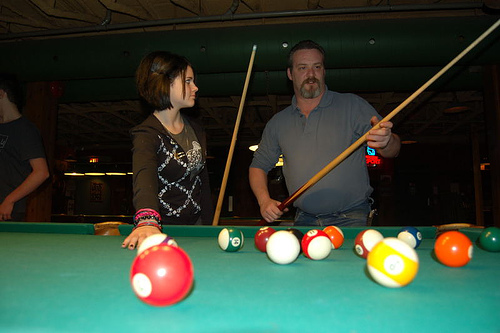The biggest complaint about school is that it’s boring. Attempts to make it better with more engaging lectures or textbooks help a bit, but they don’t address the real problem: The very type of learning encouraged in school is fundamentally dull. People of all ages are keyed to learning through experience, not sitting in rooms and listening to someone drone on about a topic.
Learning through experience, or experiential learning is the type that all animals are adapted to. Humans are the most mentally advanced animal, but the basic premise is still there. The brain expects to experience something and then learn about it through a combination of direct examination of the situation, immediate analysis, and later analysis of the memories of the event. When an educational experience matches this framework, the information will be learned faster and retained longer.
One of the main reasons classroom-style learning is used by schools much more than experiential learning is efficiency. It’s easy to cram 20 people into a room and start talking. It’s also easy and relatively cheap to print up books and make everyone read them. Despite this culture, there are still chances for the experiential way of gaining new knowledge.
Field trips are a popular way for schools to get experiential learning into the mix, but you don’t have to wait for a school-sponsored trip to learn new things by experience. Simply seek out places that offer this type of educational opportunity on your own and go check them out for yourself or your student. Museums, science centers, and other such places are popular destinations. Trips to other areas or even other countries are also great for learning by direct experience.
If you don’t want to spend the money on a trip to a far-off place, a great alternative is to visit a cultural center. A trip to the Chickasaw Cultural Center in Fort Worth, for example, will put you directly in the midst of tribal culture. You’ll get to hear Chickasaw music played live right in front of you, walk through a model of a traditional village, feel what it was like when the Chickasaws were forced from their original homeland, watch an interactive stomp dance exhibit, check out Chickasaw art and more.
By the use of exhibits that involve all of your senses, cultural centers like the Chickasaw’s keep you fully engaged with the information being presented. You aren’t left sitting with most of your sensory inputs left underused or not used at all.
This is true no matter how old you are. Even if you’re completely out of school or even retired, your mind will still pick up information quickly when that information is part of a fully engaging experience. Best of all, experiential learning is something that classrooms almost never are: fun.
If you’ve been looking for something new and interesting to do, go out and see an exhibit at the cultural center, local horticultural center, fair, or another such venue. You’ll love having all of your senses engaged as you find out things you never knew before.




